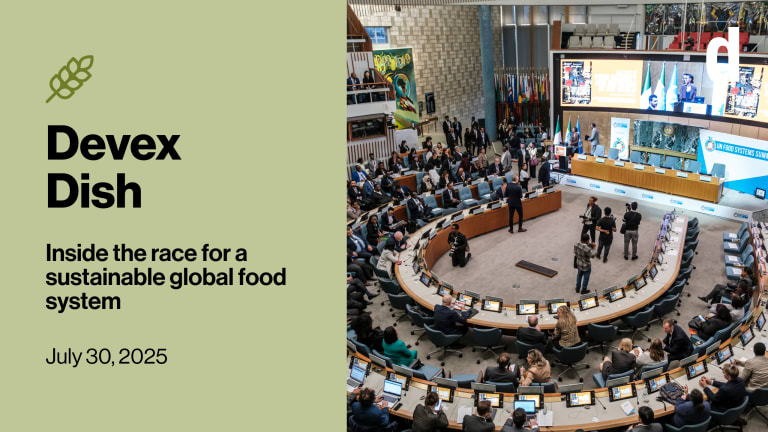The United Nations World Food Program is launching a new partnership to identify and support bold ideas to end hunger by 2030 called the Global Impact Challenge.
The collaboration with Singularity University, which works with partners to apply emerging technologies such as artificial intelligence to global challenges, comes six months after the launch of the WFP Innovation Accelerator, which supports entrepreneurs and startups working on ideas to end hunger.
“Singularity University has access to leading entrepreneurs and people who are inspired by new technology that will change the world, and we have access to lots of challenging problems in developing countries in the area of hunger,” Bernhard Kowatsch, head of the WFP Innovation Accelerator, told Devex.








